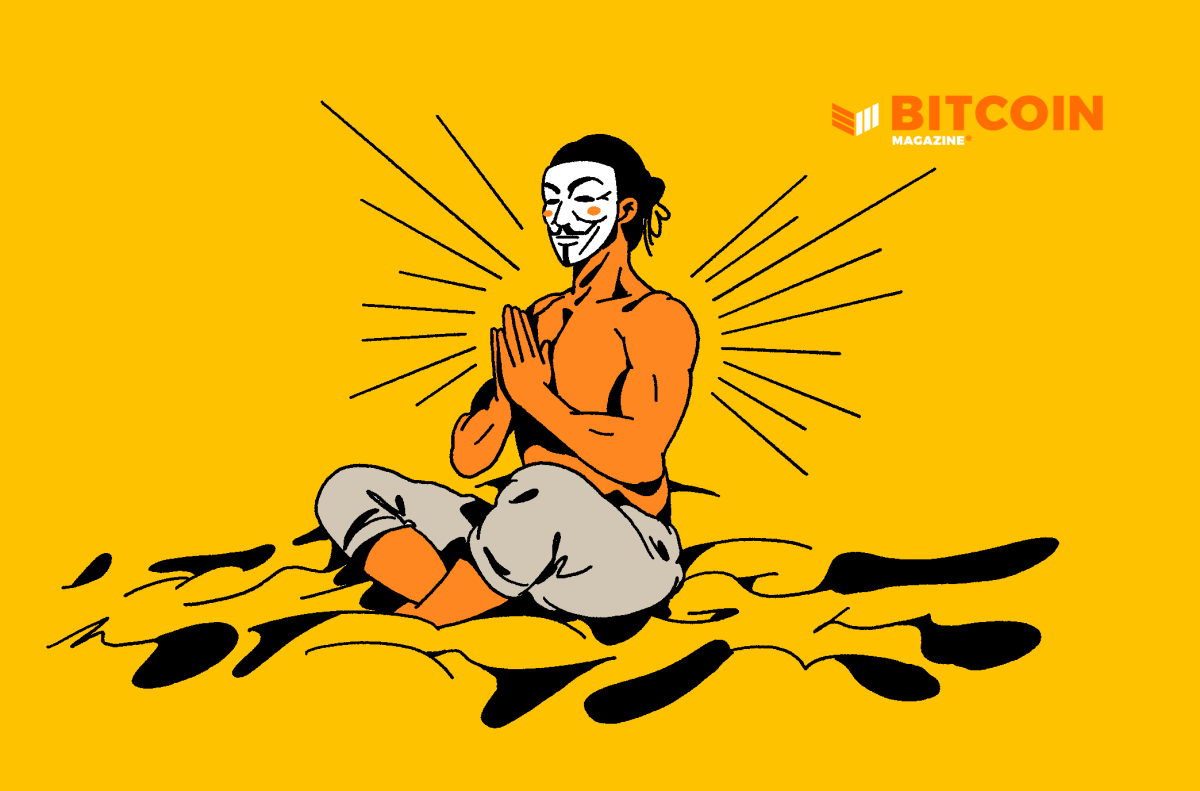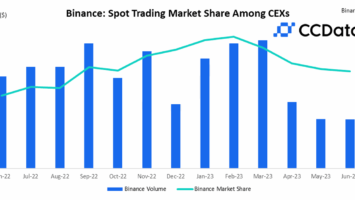
The Bitcoin network may be powered by unbiased math, but the users who transact with bitcoin are ruled by the neurons coursing through their brains, so mental health is truly the foundation of financial sovereignty.
And watching the market value of bitcoin fluctuate can be incredibly stressful. It’s crucial for bitcoin investors to question their own motives when they want to buy or sell.
“If you know what you need for immediate needs and long-term needs, then try not to check the market all the time,” said New York-based therapist Aja Evans, who specializes in issues related to financial wellness. “Recognize that you’re emotionally involved in your financial decisions. If you’ve seen other people lose money in the past and it was scary, that’s a great thing to acknowledge in yourself. The real question is, do you need this money right now, so quickly? Is there an urgent need, or is anxiety inspiring that consideration?”
Stress Management
Although some experts associate cryptocurrency trading with the same mental health risks associated with gambling and compulsive spending, bitcoin may be less affiliated with those habits if users view it as digital money, rather than primarily as a trading tool. Money is already a stressful topic for most people, regardless of volatility. According to surveys by the American Psychological Association, 76% of millennials say “money” is their greatest source of stress and this topic also rates in the top-three stressors for both Gen Z and Gen X as well. As such, Evans’ advice for bear market anxiety was in line with other psychology experts.
“If you can, just don’t look at your accounts for a couple of months. If this is the first downturn where you’ve had significant skin in the game, when gains are all you know, losses can feel really dramatic,” said California-based therapist Elizabeth Sterbenz, who specializes in financial therapy. “Once you’ve seen a few market cycles, you’ll have faith that it will come back around. That, statistically speaking, the long-term projection isn’t as bleak as it may feel today. Take yourself out of the anxiety of watching the market and focus on mindfulness, what you can control, where you are right now.”
Yet bitcoin holders who aren’t anxious about market volatility still find themselves in an emotional minefield. With all the talk of revolution, rebuilding the financial system and human rights, bitcoin’s narrative is often intertwined with deeply-held worldviews and even social standing. In a nascent industry where networking is crucial to job access and funding, plus an open-source culture that encourages people to work in public or develop parasocial audiences on platforms like Twitter, it can be tricky to separate our personal identities from our professional selves.
“Everyone’s interpretation of what’s happening is different, based on what they value,” Sterbenz said. “Money can have an impact on family dynamics and other relationships, defining who has power. It can be a way people feel they are measured, whether they are important or whether their opinion matters. Those insecurities get activated or triggered when something happens with money.”
When people argue about what is “good for” Bitcoin versus an “attack on” Bitcoin, or express other frustrations about the bitcoin economy, it can be a reflection of whether they personally feel their access to that ecosystem is threatened or secure, or whether they feel valued by the colleagues they work with in contributing to the ecosystem.
“Even though we pretend our money decisions are purely logical or motivated by math, actually, we’re coming to those decisions with our personal histories and behaviors. When it comes to an evangelical or tribal association, it’s because you’re associating it [digital money] with your personal journey,” Evans said. “If you came from an extreme situation to one where you feel better, whether that’s acquiring wealth or weight loss, it will impact how strongly emotional you feel about that strategy.”
Managing stress is all about asking ourselves why we feel what we’re feeling. Most of the time, anxiety or outrage are related to the perspective we’re coming from, even as they frame a situation in the present.
Conflict Resolution
Perhaps the best way to disarm our trigger-happy, hormotional brains is to remind ourselves that we’re all coming from different perspectives.
Whether it comes to family planning, networking with friends to look for a Bitcoin-related job or participating in online debates about open-source development decisions, Financial Therapy Association board member Nathan Astle, a therapist in Kansas, said that human interactions related to money are inherently emotional. And they can make us feel more intensely than other topics that we already know to identify as personally sensitive. In fact, miscategorizing passionate reactions to this topic as purely ethical or logical, rather than as personal perspectives, is precisely what creates fanatical blind spots or justifications for harmful behavior.
“Lots of my clients feel like they learn to live and spend money based on what they see around them. So when they join new social groups there’s a cultural shift where people worry about betraying either their past, or their new community,” Astle said. “Shame is the enemy of change.”
The fear of shame can be especially powerful in a fledgling economy rife with scams and fraud, because reputations are everything. Accusing a bitcoin user of not truly adhering to the cypherpunk ethos can have disastrous career implications. The propensity to work in public, and on community-driven projects, compounds the fear of shame enforced by performative belonging. People often behave differently in front of a crowd than they would in a small group or one on one. While it’s impossible to imagine Bitcoin without public debate and reputational risks, it’s important for our mental health to consider the distinction between honesty or accountability and online harassment or bullying.
In the Bitcoin community, people sometimes associate harassment with social media. While it is true that online harassment trends can have severe mental health implications, trolling is not the only form of bullying. From Bitcoin companies to academia, bullying can also take quieter forms. Sepler & Associates founder Fran Sepler, a Minnesota-based workplace investigations expert known for researching corporate cultures and strategies for reducing harassment, described quiet bullying as when someone tries to isolate rivals through reputational harm. This pattern is most common among women bullying other women, as women are less likely to be outspoken in their aggression, although it takes place among all genders.
“The manipulative and deceptive methods might involve things like inventing false information about someone with a grain of truth to it, so it can be defended, encouraging other people to complain about someone or see faults in someone in an attempt to isolate them, positioning oneself as a friend then divulging information that was given in confidence,” Sepler said. “Other strategies might be excoriating someone behind closed doors but pretending to be their champion publicly.”
Where is the line between community accountability and bullying? It depends on the circumstances. In terms of protecting our own mental health, this might mean first processing conflicts in private and taking time away from screens, regardless of how other people are behaving online.
“We do have performative requirements in our responses. So this is about knowing when and where to seek help and take care of ourselves,” Sepler said. “We shouldn’t say emotions are incorrect or shouldn’t be processed, but we might need to process them in a different situation or with different people.”
The best way to reduce conflict within the Bitcoin community is to focus on clarity of expectations, up front, and managing expectations. Both Sepler and Sterbenz agreed that most utility friendships, formed by working together or learning together or intentional networking, should not be confused with close personal friendships. Trust must be earned, with full awareness of what the other person wants from you, not inherently granted to those who also identify with the Bitcoin ethos. (This can help people avoid wrench attacks as well.) Sepler and Astle both added that everyone makes mistakes, whether communicating poorly or investing in a regrettable project.
Giving both ourselves and others grace is the best way to defang the shame that motivates our brains to justify problematic behavior that perpetuates conflict.
Know Thyself
Overall, all of the above-mentioned psychology experts said that most of the time when people have a passionate reaction to a situation involving digital money, there’s probably personal context at play that isn’t being acknowledged.
Once we acknowledge where we’re coming from, why we feel so passionate about a particular issue, we’re less likely to make impulsive financial choices or have conflicts with other people about Bitcoin. After all, it is self-sovereign money. We’re all able to use Bitcoin however we want, regardless of what other people think.
When it comes to being your own bank, it’s important to be able to receive new information about the technology and the market, in order to identify the best Bitcoin tools and software choices for a particular use case. Since people inherently tend to confirm their own biases and overlook or ignore information that contradicts their own desires or deeply-held beliefs, the best way to be impartial is to know what you value.
If everyone who owns bitcoin spent a few minutes thinking about his or her own money history, then kept it in mind when processing information related to bitcoin, the new financial system might include fewer politicized pitfalls than the previous system.
“Changing your perspective takes work. There’s no magic pill,” Sterbenz said. “It takes a decision to say this is something that you want to be curious about and learn about how it’s affecting you. Once you start thinking about other perspectives or options, only then will you be able to see if other ways work better for you. Coming back to curiosity is always a good choice.”
This is a guest post by Leigh Cuen. Opinions expressed are entirely their own and do not necessarily reflect those of BTC Inc or Bitcoin Magazine.



Comments (No)